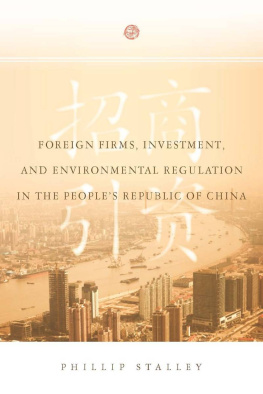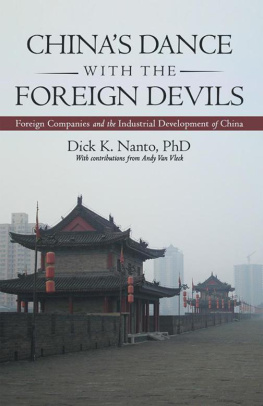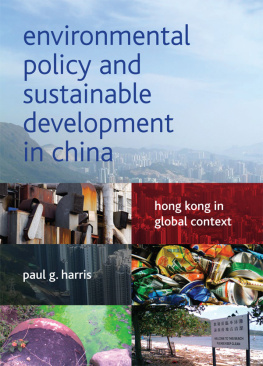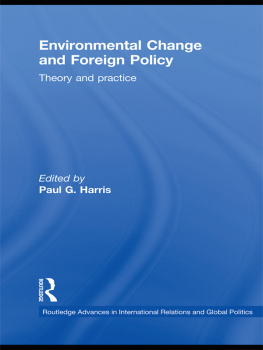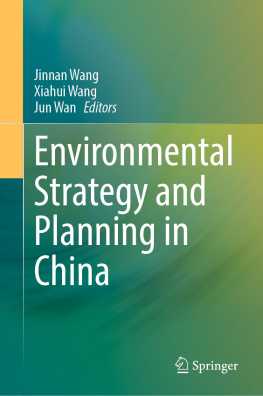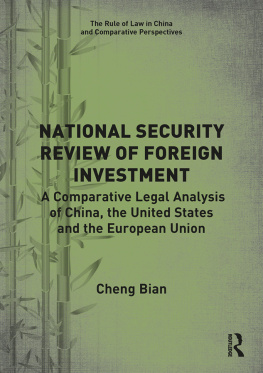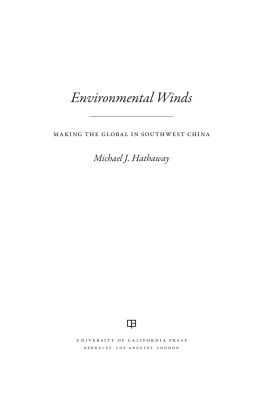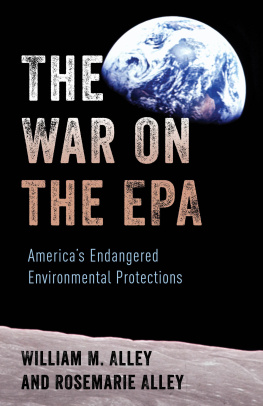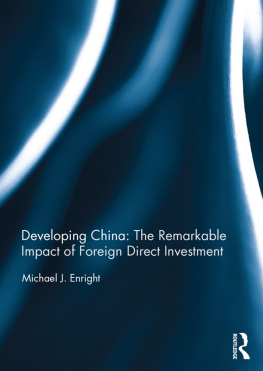Stanford University Press
Stanford, California
2010 by the Board of Trustees of the Leland Stanford Junior University. All rights reserved.
No part of this book may be reproduced or transmitted in any form or by any means, electronic or mechanical, including photocopying and recording, or in any information storage or retrieval system without the prior written permission of Stanford University Press.
Printed in the United States of America on acid-free, archival-quality paper
Library of Congress Cataloging-in-Publication Data
Stalley, Phillip.
Foreign firms, investment, and environmental regulation in the People's Republic of China / Phillip Stalley.
p. cm.
Includes bibliographical references and index.
ISBN 978-0-8047-7153-5 (cloth : alk. paper)
1. Environmental policyChina. 2. Business enterprises, ForeignEnvironmental aspectsChina. 3. Investments, ForeignEnvironmental aspectsChina. 4. Environmental lawChina. I. Title.
GE190.C6S73 2010
333.70951dc22
2010013024
Typeset by Motto Publishing Services in 10/14 Minion
eISBN: 9780804775144
Acknowledgments
Throughout the course of completing this book I have relied on the advice and support of more people than I have space to acknowledge. Numerous individuals have aided this project through conversations that they have probably forgotten but that I found extremely useful. This includes Elizabeth Economy, Craig Allen, Hussein Anwar, Ma Jun, Kelly Sims Gallagher, Wang Hua, Petra Christmann, and a great number of environmental, health, and safety specialists in China. None of these people had any incentive to talk to me, yet each took time out to share his or her experience and knowledge. I would also like to thank those in the George Washington University and Washington DC community who have provided advice and/or encouragement including but not limited to Bruce Dickson, Forrest Maltzman, Lee Sigelman, Jennifer Turner, Miranda Schreurs, and John Donaldson. Like many books, this one is built on the foundation of a dissertation, and I owe a special thanks to my original dissertation committeeDavid Shambaugh, Susan Sell, and Martha Finnemore. Whether reading a draft chapter or guiding me through fieldwork, they always provided me with frank, perceptive comments and often went beyond the call of duty in offering assistance. They asked the tough questionsthe ones that a student may not want to hear but that serve to identify weaknesses, clarify arguments, and in general improve the overall product. Finally, I am forever indebted to Sidney Rittenberg, who sparked my initial interest in Chinese politics and inspired my first trip to China.
There are also many institutions to which I owe a significant debt of gratitude. The Sigur Center for Asian Studies at The George Washington University provided me with a Numata fellowship, which allowed for an extended research trip in China a year prior to the official commencement of field research. It is difficult to overestimate the importance of that initial experience in China in facilitating subsequent research. The Blakemore Foundation offered a very generous fellowship that allowed for language study at the Berkeley/Qinghua Inter-University Program (IUP). With the aid of the Blakemore fellowship and the dedicated teachers of IUP, I was able to utilize a number of Chinese sources that I hope have enriched the book's analysis. The Chiang-Ching kuo Foundation provided a fellowship for my field research and the Environmental Economics Center (EEC) at Fudan University served as my host unit while I was in Shanghai. I am thankful to Li Zhiqing of the EEC for not only his practical advice but his friendship during my stay in China. Xu Jianwei and Zhou Yihong also provided me with important research assistance. I am especially indebted to the Woodrow Wilson School at Princeton University and to Iain Johnston and Tom Christensen for allowing me the opportunity to spend a year working on the book as a visiting research fellow in the Princeton-Harvard China and the World Program. My interactions at Princeton with other visiting fellows, faculty, and graduate students proved invaluable in helping me develop and refine the arguments presented in this book. Finally, DePaul University's University Research Council provided funding that allowed me to revise and complete the manuscript.
I also owe a word of thanks to Stacy Wagner at Stanford University Press both for her insightful comments on the original manuscript and for patiently guiding me through the review process. Thanks as well to the anonymous reviewers for the considerable amount of time and care they put into reading my work. The external reviews offered many useful ideas for improvement that ultimately contributed to a cleaner and stronger manuscript, but of course all remaining errors are my own.
Finally, I would like to thank my family. My parents certainly never imagined their son would take off for China upon graduation from college and likely marvel at my ability to study so much and earn so little, yet they always offered their unconditional support. I would also like to thank my wife, Evance. She has spent more time than I imagine she cared to listening to my ideas and complaints and has steadfastly offered much-needed love and encouragement through the long process of writing and publishing this book. More than anything else it is the happiness Evance has provided in my personal life that has helped me complete this project.
Abbreviations
ADB Asian Development Bank
AICM Association of International Chemical Manufacturers
CASS Chinese Academy of Social Sciences
CICETE China International Center for Economic and Technical Exchanges
CLAPV Center for Legal Assistance to Pollution Victims
CPCIA China Petrochemical and Chemical Industry Association
CTE Committee on Trade and Environment (of the World Trade Organization)
EDTZ Economic Development and Technology Zone
EHS Environment, Health, and Safety
EIA Environmental Impact Assessment
EMS Environmental Management System
EPB Environmental Protection Bureau
EPL Environmental Protection Law of the People's Republic of China, 1979/1989
EPZ Export Processing Zone
ERM Environmental Resources Management
ERS Environmental Responsibility System
ESIA Environment and Social Impact Assessment
FDI Foreign Direct Investment
FIE Foreign-invested Enterprise
FSR Feasibility Study Report
FYP Five-year Plan
GRI Global Reporting Initiative
INGO International Non-governmental Organization
ISO International Standards Organization
MEA Multilateral Environmental Agreement
MEP Ministry of Environmental Protection (SEPA prior to 2008)
MNC Multinational Corporation
MOC Ministry of Commerce
MOFTEC Ministry of Foreign Trade and Economic Cooperation
MSDS Material Safety Data Sheet
NDRC National Development and Reform Commission
NEPA National Environmental Protection Administration (SEPA after 1998)
NIC Newly Industrializing Country
PIP Project Impacted Persons
POGWG Petrochemical, Oil, and Gas Working Group (of the European Chamber of Commerce)
POP Persistent Organic Pollutant
PPE Personal Protection Equipment
SEPA State Environmental Protection Administration (MEP after 2008)
TRI Toxic Releases Inventory
UNDP United Nations Development Programme
UNEP United Nations Environment Programme

